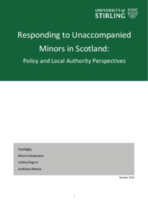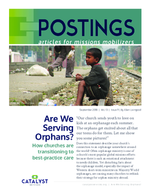Parenting for Brain Development and Prosperity
In this video, Philip A. Fisher, a senior fellow at the Center on the Developing Child at Harvard University presents at NBC News’ 2013 Education Nation Summit, explaining why positive, reciprocal interactions between caregivers and children can have enormous positive effects on children’s development and lay the groundwork for a prosperous future.


